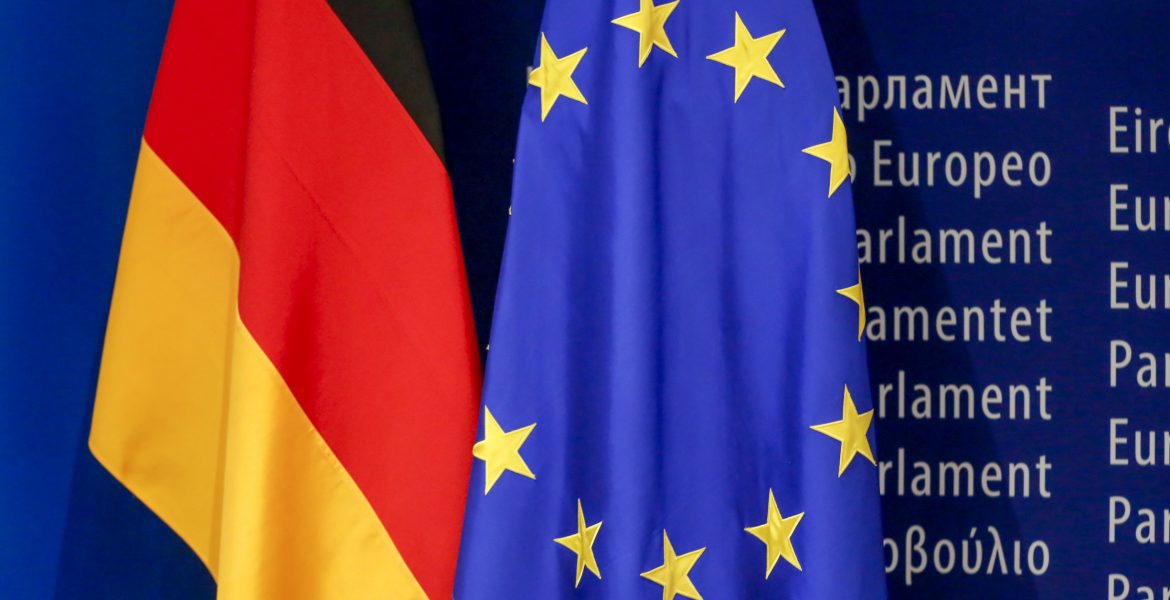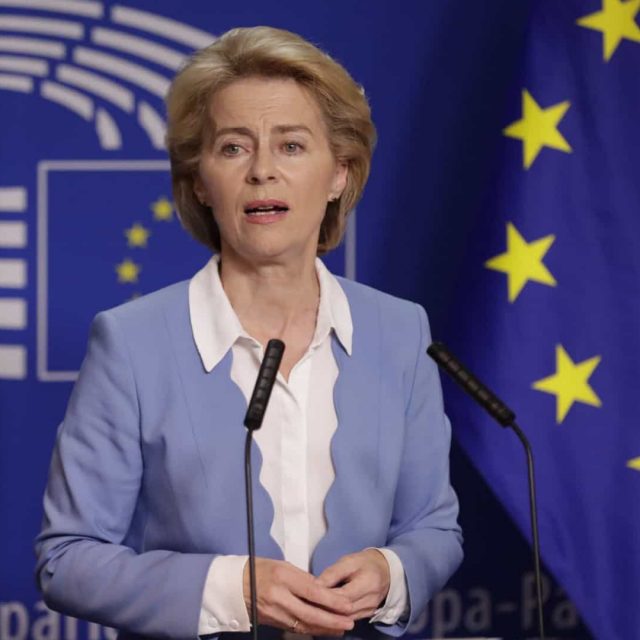A major pan-European polling round, the European Council on Foreign Relations (ECFR) asked citizens of the EU’s 12 most important member states for their thoughts on German leadership within the EU-27, both retrospectively, with regards the Merkel-era, and how they see Germany’s representation in Europe changing beyond this week’s elections.
The findings include:
- There is enduring support in Europe for Angela Merkel and her ambitions for the EU – with many citizens seeing her as a preferred candidate for the presidency of the bloc. When asked, hypothetically, who they would vote for in a contest between Germany’s Angela Merkel and France’s Emmanuel Macron for EU president, ECFR detected a plurality of support in most countries – and majority of support in the Netherlands (58%), Spain (57%) and Portugal (52%) – for Merkel.
- More Europeans believe that without Merkel, there would have been more conflict in the world rather than less. This view was most pronounced among respondents in Spain (33%), the Netherlands (30%) and Portugal (28%), Spain (33%), the Netherlands (30%) and Portugal (28%).
- Despite pursuing an austerity agenda during the European debt crisis and a ‘schwarze Null’ (‘black zero’) budgetary balance rule, German leadership on economic policy within the EU has considerable support. This was most pronounced in Hungary, where half of respondents (50%) indicated support for German leadership – despite Hungary not being a member of the euro area – and in Spain, where just under half held this view (45%). The Netherlands, a member of the EU’s so-called “frugal” countries, followed closely at 43%. Support was lowest in Italy, at 24%, but this was still the strongest answer among those who expressed an opinion.
- There are calls, in some parts of Europe, for greater German leadership in EU-level engagements with the United States, China and Russia. For example, in Hungary (44%), the Netherlands (33%), Denmark (30%) and Sweden (28%), would like to see Germany lead the bloc in relations with the US. There was also some appetite in these countries for greater German involvement in relations with Russia and China.
- However, Berlin’s credibility is generally limited on matters of geopolitics. ECFR found little support for handing Berlin the reins to the bloc’s dealings with China (17%), Russia (20%) or the US (25%). Of the surveyed member states, respondents in France, Poland, Italy and Bulgaria were most sceptical of these proposals.
- German citizens are also yet to be persuaded that their country should play a greater role within the EU. Only on standing up for democracy and human rights do more than a third of respondents (38%) believe Berlin can defend European interests.
- They are pessimistic about their country’s future, too, with a majority believing it is past its “golden age”. At 52%, of all the member states polled, they are by far the most pessimistic about their country’s future (aside from respondents in Austria, who are equally pessimistic). 24% of respondents in Germany believe that their country is in its “golden age” today or that it is still to come. This view is shared by a significant minority in Europe – with more than a third agreeing that Germany’s star is fading. Across the 12 countries polled, 34% of respondents say Germany is past its “golden age” – and just 10% believe it is still to come.
- Yet, despite this, very few fear a resurgence of nationalism in the country. Only 19% of German respondents see such a risk developing – compared to 27% in the other surveyed countries. 36% of Germans, meanwhile, expect their country’s leadership to become more focused on helping other Europeans. 1 in 4, in the other 11 member states surveyed, believe this will be the case.
Piotr Buras, co-author of ECFR’s ‘Beyond Merkelism’ polling report and head of the think-tank’s Warsaw office said: “Merkelism’ is no longer sustainable, and Germany’s next chancellor will have to find another way forward. Merkel may have adroitly maintained the status quo across the continent over the past 15 years, but the challenges that Europe faces now – the pandemic, climate change, and geopolitical competition – require radical solutions, not cosmetic changes. What the EU needs now is a visionary Germany that will stand up for the bloc’s values and defend its place in the world.”
Jana Puglierin, co-author and head of ECFR’s Berlin office added: “The approach of putting EU cohesion above all else, which has shaped much of the EU’s policy agenda during the Merkel era, could prove a tempting and immediate pathway for Germany’s new government. However, in the face of international crises, and domestic concerns about Germany’s role within the EU, a strategy of “more of the same” is unlikely to hold.”
“For Germany to retain its status as the leading driver of EU policy, it will need to engage with the issues that are important to its citizens, and provide its European partners with clear-cut ideas about how the EU can compete in a divided and crisis-shaken world. Merkel’s successors will need to demonstrate why a post-Atlanticist approach to foreign policy is now key, while at the same time selling the importance of German leadership in the bloc to their voters at home. They can no longer afford to remain neutral, or pursue the status quo. It is time for Berlin to take sides.”




